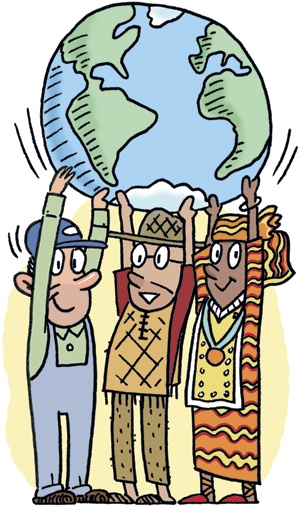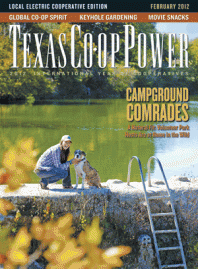The United Nations General Assembly has designated 2012 as the International Year of Cooperatives under the banner “Cooperative Enterprises Build a Better World.” The resolution recognizes the vital role cooperatives play in the economic and social well-being of nations around the globe.
Cooperatives are democratically governed businesses that operate on an at-cost, not-for-profit basis.
“At a time when folks are losing faith in big corporations, International Year of Cooperatives 2012 offers us a great opportunity to showcase the many ways the local, consumer-owned and member-controlled cooperative form of business benefits communities all over the world,” says Glenn English, CEO of the National Rural Electric Cooperative Association. “It gives cooperatives a perfect venue to contrast how we differ from profit-driven companies.”
Co-ops Are Everywhere
Every day, more than 29,200 cooperatives supply essential products and services to American consumers, touching our lives in almost every way.
Check your morning newspaper. The articles labeled “Associated Press” or “AP” were written by individual reporters but distributed by a cooperative news organization.
If your breakfast includes freshly squeezed orange juice, it may be from Sunkist, a cooperative formed by California and Arizona citrus growers.
And the list goes on: Land O’ Lakes butter, Ocean Spray cranberry juice, Sun-Maid raisins, Welch’s grape jelly, Nationwide Insurance, Blue Diamond almonds, Ace Hardware, REI outdoor gear—they are all cooperatives.
Cooperatives, such as your electric co-op, differ from “typical” businesses in a big way: They work for the benefit of their members, not single owners or stockholders.
“When you’re a member of a co-op, you have a real say in the direction of that business. That’s critical—it helps the co-op rapidly respond to changing conditions,” explains Martin Lowery, NRECA executive vice president, external affairs.
For Example:
• Credit unions fought off the destructive cycle of payday loans by creating salary advance loans with low rates that placed part of the borrowing into a savings account―helping members escape a cycle of debt.
• Marketing cooperatives added food nutrition labels to products long before it was required by federal law.
• Electric cooperatives lead the way in smart-grid implementation—close to half have installed advanced metering infrastructure, with 30 percent integrating it or automated meter-reading devices with various software applications, such as outage management and geographic information systems.
“It’s in every co-op’s DNA to serve members in the best way possible,” says Lowery. “That’s why co-ops remain the best type of business around.”
——————–
Megan McKoy-Noe is an associate editor for the NRECA.
To find a cooperative near you, visit www.go.coop.


